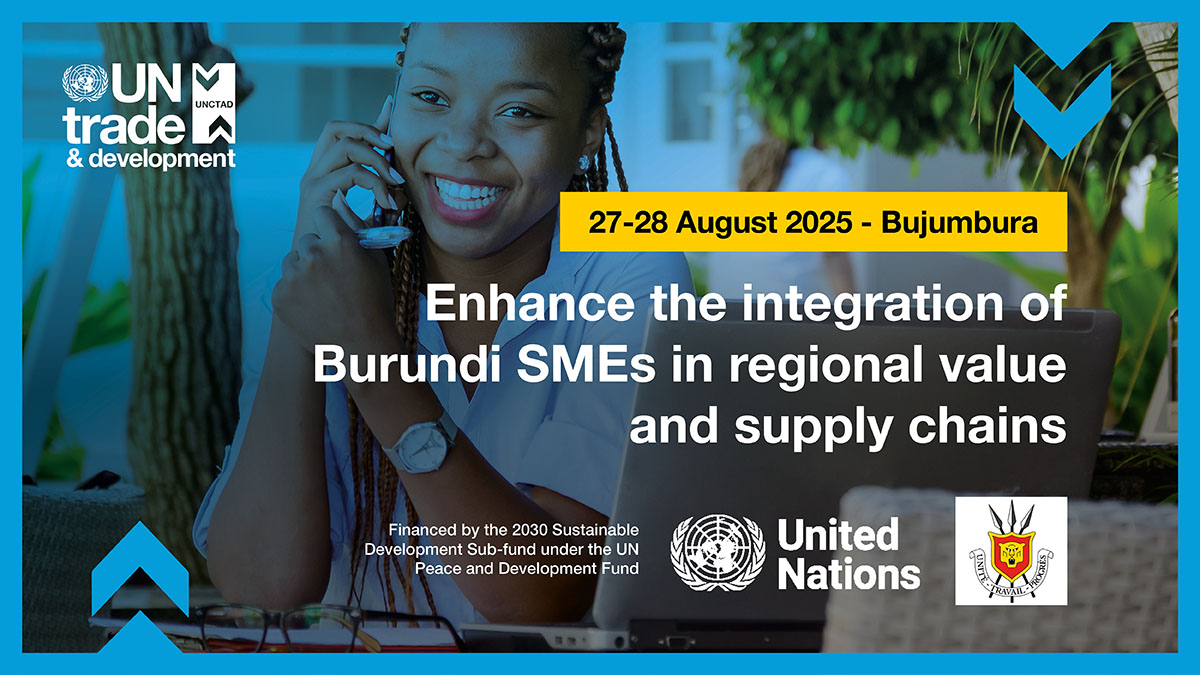
Burundi is undergoing significant economic reforms aimed at stimulating private sector growth, yet its participation in regional trade remains limited, and its economy heavily reliant on a narrow range of sectors. While frameworks like the East African Community, the Common Market for Eastern and Southern Africa, and the African Continental Free Trade Area (AfCFTA) offer promising pathways for integration, small and medium-sized enterprises (SMEs) in Burundi continue to face significant challenges integrating into regional value chains (RVCs). These challenges include high transaction costs, regulatory constraints, weak access to finance, limited production capacity, and lack of market and trade information. To address these barriers, UNCTAD has launched a multi-country project to enhance the participation of SMEs in RVCs by equipping governments and private sector actors with practical tools, policy incentives, and data-driven insights.
In the framework of the project, the national validation workshop on enhancing Burundi SMEs’ participation in regional value chains will be held on 27–28 August 2025 in Bujumbura. Organized by UNCTAD in collaboration with the Ministry of Trade, Transport, Industry and Tourism, the Presidency of the Republic, and the UN Resident Coordinator’s Office in Burundi, the workshop will validate the findings of the national impact study conducted by UNCTAD. The study assesses the current landscape, identifies structural bottlenecks and provides actionable recommendations to strengthen SME competitiveness and regional integration under the AfCFTA. Building on a series of consultation meetings with local key stakeholders, the two-day workshop will bring together representatives from the government, the private sector, development institutions, and academia to review the study, enrich its recommendations, and discuss priority policy actions and support mechanisms. Particular attention will be given to sectors with high SME potential such as iron and steel, plastics, glass and glassware, and tea.
Bringing together approximately 40 participants, the workshop will cover thematic discussions, presentations and recommendations to refine the project’s implementation in Burundi. Participation is by invitation only.


